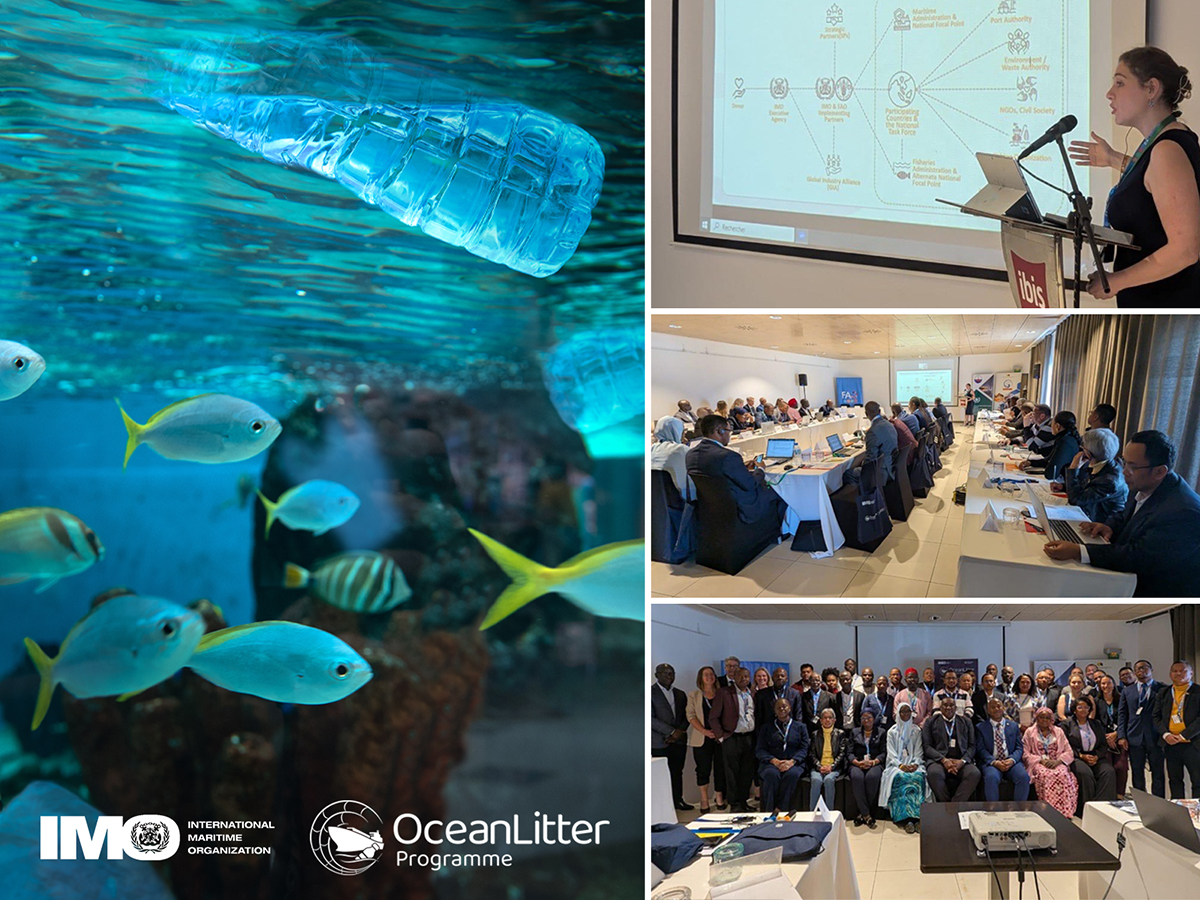The second GloLitter Africa Regional Task Force Meeting takes place this week (30 June - 4 July) in Antananarivo, Madagascar, bringing together key stakeholders to tackle marine plastic litter from shipping and fisheries.
With the equivalent of 2,000 garbage trucks’ worth of plastic entering the world’s waters each day, a figure set to nearly triple by 2040, many African countries are stepping up efforts to reverse the tide.
Jointly led by IMO and the Food and Agriculture Organization of the United Nations (FAO), the meeting will advance participants’ knowledge on integrating international legal frameworks into national policies, optimizing data and research and enhancing regional cooperation.
Unprecedented pressure
Capitaine de Vaisseau Jean Edmond Randrianantenaina, Director General of the Port, Maritime and Waterways Agency of Madagascar said:
“We live in an era where our oceans are under unprecedented pressure. Marine plastic litter is now found in every corner of the world’s seas, from the remotest beaches to the deepest ocean trenches.
“The impacts are well known: devastating effects on marine biodiversity, damage to fishing gear and port infrastructure, threats to human health and food security, and direct economic losses in coastal and maritime industries.”
Catalyzing regional collaboration
Building on GloLitter Partnerships Project twinning proposals developed during the first Africa Regional Task Force Meeting in Kenya in 2023, the meeting aims to:
- Enhance participants' knowledge of the ratification and integration of international instruments and conventions into national policies.
- Demonstrate the crucial role of information collection, at sea and on shore, in understanding the regional strengths and gaps.
- Spark collaboration by highlighting ongoing efforts led by regional partners and encouraging new connections to share knowledge, tools and solutions.
The event is hosted by Madagascar’s Ministry of Fisheries and Blue Economy (MEPB) and the Ministry of Transports and Meteorology with the Maritime, Port and Waterways Agency, with representatives from 11 African countries attending (Cabo Verde, Côte d’Ivoire, Gambia, Kenya, Madagascar, Mozambique, Nigeria, Senegal, Sudan, Togo, and Tanzania). Port authorities, shipping and fishing companies, environmental authorities and national research centres are also joining the discussion.
“No country can solve the marine litter crisis alone. We need to continue working hand in hand, sharing knowledge, harmonizing approaches, and leveraging international support,” added Capitaine de Vaisseau Randrianantenaina.
Supporting Member States through joint initiatives
The GloLitter Partnerships Project is one of three projects under the IMO’s OceanLitter Programme. Jointly implemented by the IMO and FAO, the Ocean Litter Programme supports IMO’s Strategy and 2025 Action Plan to Address Marine Plastic Litter from Ships, in line with provisions in the International Convention for the Prevention of Pollution from Ships (MARPOL), the Convention on the Prevention of Marine Pollution by Dumping of Wastes and Other Matter (London Convention and London Protocol), as well as FAO’s Voluntary Guidelines on the Marking of Fishing Gear.
The programme supports Small Islands Developing States and Least Developed Countries in identifying opportunities for the prevention and reduction of marine litter, including by equipping partner countries with knowledge and tools to initiate relevant legal, policy and institutional reforms in shipping and fisheries sectors, while promoting the engagement of women in efforts to combat marine plastic pollution.
